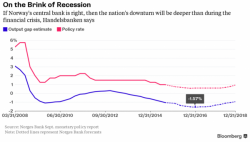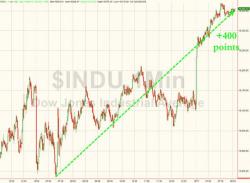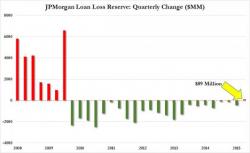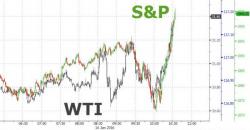Norway's Black Gold Fields Are A Sea Of Red - A Real-Time Map Of Crude Carnage

Norway is in trouble. As we have detailed previously (here, here, here, and here), the world's largest sovereign wealth fund has begun liquidating assets (after its largest quarterly loss) as the nation faces recessionary fears (key data deterioration as oil stays lower for longer) with expectations building (despite denials by the central bank) that ZIRP (or even NIRP) is coming. Why? Simple - as the following real-time map shows - every one of Norway's oil fields are currently underwater!



